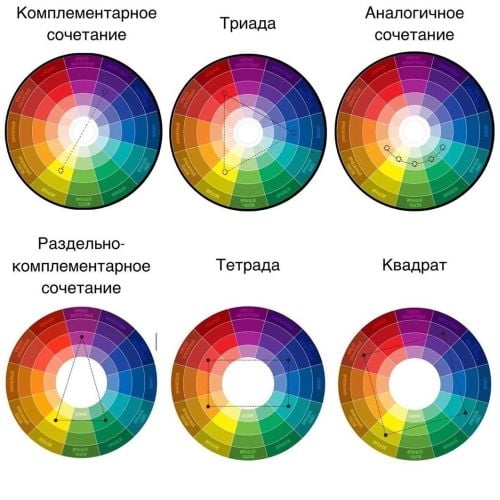As in any work of art, an ideal bouquet should have harmony, ease of perception, and balance. The floral composition, like a beautiful melody, consists of notes of flowers that merge and become larger than the sum of the elements. It is a unique, pure, unrepeatable creation that evokes special emotions and feelings.
Talented florists listen to nature and follow the rules of creating a harmonious composition. After all, only a bouquet that is similar to the natural habitat and allows you to feel the magnificence of the world around you is considered ideal. But even flower art gurus have several requirements.
1. Proper preparation of flowers for work
To keep the bouquets fresh, you must:
- Take care of the freshness of the water.
- Keep vases clean.
- Make a fresh cut after receiving the flowers from the manufacturer and before sending the bouquet to the client.
- Monitor the amount of water in the vases. On average, the stems should be immersed in 30-50% of the water, depending on the type of plant. In this case, the leaves should not be in the water; otherwise, the water will start to rot.
- Each variety should be in its vase.
It is better to order delivery of bouquets as a gift in companies that adhere to these recommendations and store flowers in refrigerators at a temperature of 7-10 ° C.
2. Applying basic rules for working with composition
Both the laconic round-shaped bouquet and the playful rattle require proper handling. They do not allow material changes in direction, inappropriate ligament location, too much squeezing, or a feeling of knocking when the buds lack air and space.
3. Following the main idea and concept
Before creating a bouquet, the florist determines the mood that he wants to convey through his creation. It presents the basic parameters of the composition, its colors, shapes, lines, and contours. Then, the types of flowers are selected. Tiny buds of light shades carry lightness and tenderness. In large and bright bouquets, the play of contrasts and heavier, long, and weighty forms are allowed.
4. Competent color rendering
A professional florist knows color theory as well as an artist. The ability to capture the mood of shades comes with experience and observation of the world around us. But you can make friends with colors more easily. Beginning and experienced florists often use Itten's color wheel when creating bouquets. It helps to combine shades in different ways:
- Monochrome - when several tones of the same color are taken.
- Similarly, using several adjacent colors of the circle.
- Complementary - a combination of two opposite sectors.
- Contrast triad - using shades that form a sharp triangle on the circle.
- The classic triad is a combination of colors in a triangle shape, the extreme points of which are equally distant.
If you want to buy the perfect bouquet with delivery in Ukraine, please pay attention to the shades in it. In a quality composition, the dominant color should be visible.
 |
5. Compliance with "divine proportions"
Bouquets are also created based on composition rules like any painting, photograph, or art object. The most common principle is "30 to 70". For example, when the leg takes up 30% of the bouquet, and flowers and greenery 70%. The same goes for the use of tones. Works in which 65-70% of the solo shade are perceived better. 30-35% of the composition will be occupied by accents, contrasting, or additional tones. But florists do not recommend ordering a bouquet with delivery with a 50/50 color distribution - it looks "cheaper" and less presentable.
6. Finding balance
The transitions in the bouquet should be smooth. No breaks or voids are allowed in the filled parts, where the flowers are more tightly pressed together. If elements of different sizes are used, half of the composition should be medium-sized buds, no more than 20% should be given to large ones, and about 30% to small ones. In this case, the accents should not be strictly in the center.
7. Reasonable grouping
By placing flowers at different levels, florists set the dynamics and texture of the composition. Correct grouping implies a distribution of elements that distinguish each bud and give it the potential to open. Then, the bouquet looks natural and follows the fundamental laws of nature.
8. Knowing of limits
An ideal bouquet is :
- Nothing of the same type.
- Nothing extra.
To create a rhythmic composition, it is better to use different materials. At the same time, it is better to refuse excessive saturation: no matter how beautiful the flowers are, there should not be too many of them.
9. Suitable packaging
A wrapper is a frame that affects perception. A bright "candy wrapper" often makes the contents tastier, but such packaging may not be in harmony with another bouquet. To correctly complete the finished work, florists recommend not to be lazy and consider different options for the wrapper: minimalistic, made of unusual materials, contrasting, or even leaving the "picture" without a frame.
10. Proper storage and careful delivery
Even the perfect bouquet will lose its charm if stored in the wrong conditions. It is better to create bouquets shortly before delivery and observe the temperature regime during their transportation. It is worth considering the peculiarities of each species: if tulips at low temperatures can remain fresh for several days without access to water, then hydrangea will wither without moisture, even in the shortest possible time.
Ukraineflora delivers flowers and gifts in Ukraine. Our florists never stop improving their skills in flower craft, creating bouquets according to the rules of harmonious composition, being interested in fashion trends, and putting them into practice. Like fabulous fairies, they take care of each bud. We buy all flowers from trusted suppliers, store them in refrigerators, and form bouquets two hours before dispatch. All goods are delivered in an air-conditioned vehicle.
